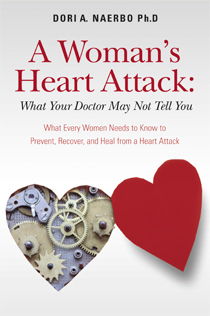Coenzyme Q10 (CoQ10 or Q10) is important for your heart health. It is a catalyst that creates energy on a cellular level and is essential to produce ATP (adenosine triphosphate). ATP is like our battery of life and is produced in the mitochondria of cells. CoQ10 is needed for mitochondrial ATP synthesis. Ubiquinone and ubiquinol are both forms of CoQ10, but ubiquinone is the form of CoQ10 that commonly is found in stores. Ubiquinone is in the oxidative form and, when taken, it’s converted into the reduced form of CoQ10 called ubiquinol. CoQ10 also works as an antioxidant. Aging is associated with decreased CoQ 10 levels in muscular tissue, for example, your heart.
“The amount of antioxidants in your body is directly proportional to how long you will live.”
– Dr. Richard Cutler, former Director of the National Institute of Aging, Washington
There are many people with heart conditions (i.e. heart failure, heart attack) that supplement with CoQ10, myself included. The studies and current meta analysis are divided in making any scientific claims to its benefits, however, those with heart conditions that take CoQ10, remain on it for years because of the improvement they have experience, some of which is documented.
Researchers in Japan have used CoQ10 as an approved therapy for heart failure since 1974 (Tran et al. 2001; Kettawan et al. 2007). In addition, according to the Journal of Thoracic and Cardiovascular Surgery CoQ10 given before cardiac surgery improves mitochondrial function.[1]
The largest number of mitochondria and the greatest amount of CoQ10 resides in the heart and liver. CoQ10 is highly concentrated in the heart muscle because of its high energy demands and it’s an essential nutrient. Folkers et al. (1990) warned that heart disease is caused by declining levels of CoQ10 and that it worsens with the use of statins. Recall that statins are used to correct high cholesterol and often are prescribed for heart attack patients.
Statin-induced depletion of CoQ10 is well supported by peer reviewed research. Cardiologist Peter H. Langsjoen, advised that a black box warning should be placed on all statins that reads:
HMG CoA reductase inhibitors block the endogenous biosynthesis of an essential cofactor, coenzyme Q10, required for energy production. A deficiency of coenzyme Q10 is associated with impairment of myocardial function, with liver dysfunction and with myopathies (including cardiomyopathy and congestive heart failure). All patients taking HMG CoA reductase inhibitors should therefore be advised to take 100 to 200 mg per day of supplemental coenzyme Q10. (Langsjoen, 2002).
As of the writing of this book, ten years have passed, and no black box warning about a deficiency of coenzyme Q10 has been placed on statins.[2] At the same time, the public doesn’t generally know that CoQ10 is an essential nutrient for heart health. My point here is that readers need to talk to their doctors about supplementing with CoQ10, especially if they are on statin therapy.
For more information read the book,A Woman’s Heart Attack: What Your Doctor May Not Tell You: What Every Women Needs to Know to Prevent, Recover, and Heal from a Heart Attack. Although, this book was written with the female heart in mind, there are many aspects that are equally important for men recovering and healing from a heart attack or heart failure.
Do you take CoQ10? Our readers would like to hear your experiences. Please feel free to post your comments.
Copyright © 2013 DoriNaerbo.com. All rights reserved
[1] Franklin Rosenfeldt, Silvana Marasco, William Lyon, Michelle Wowk, Freya Sheeran, Michael Bailey, Donald Esmore, Bruce Davis, Adrian Pick, Mark Rabinov, Julian Smith, Phillip Nagley, Salvatore Pepe. Coenzyme Q10 therapy before cardiac surgery improves mitochondrial function and in vitro contractility of myocardial tissue. The Journal of Thoracic and Cardiovascular Surgery – January 2005 (Vol. 129, Issue 1, Pages 25-32, DOI: 10.1016/j.jtcvs.2004.03.034)
[2] Interestingly, in February 2012, the U. S. Food and Drug Administration (FDA) added warnings about diabetes and memory loss to the packaging of statins.







Speak Your Mind